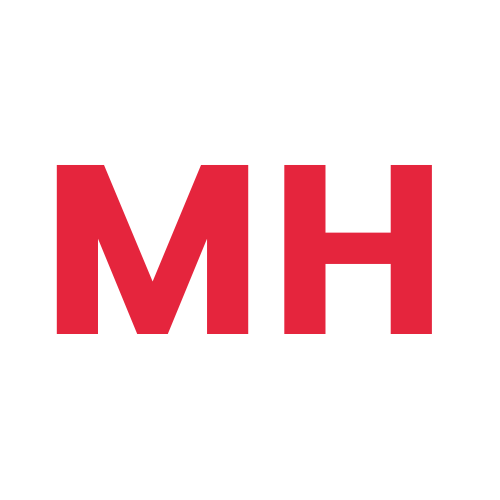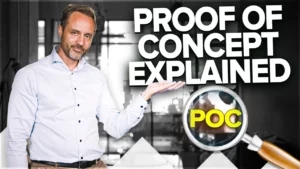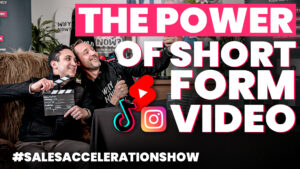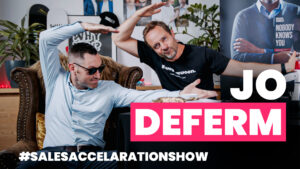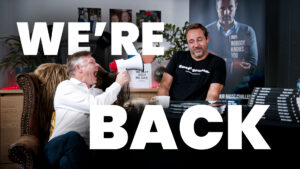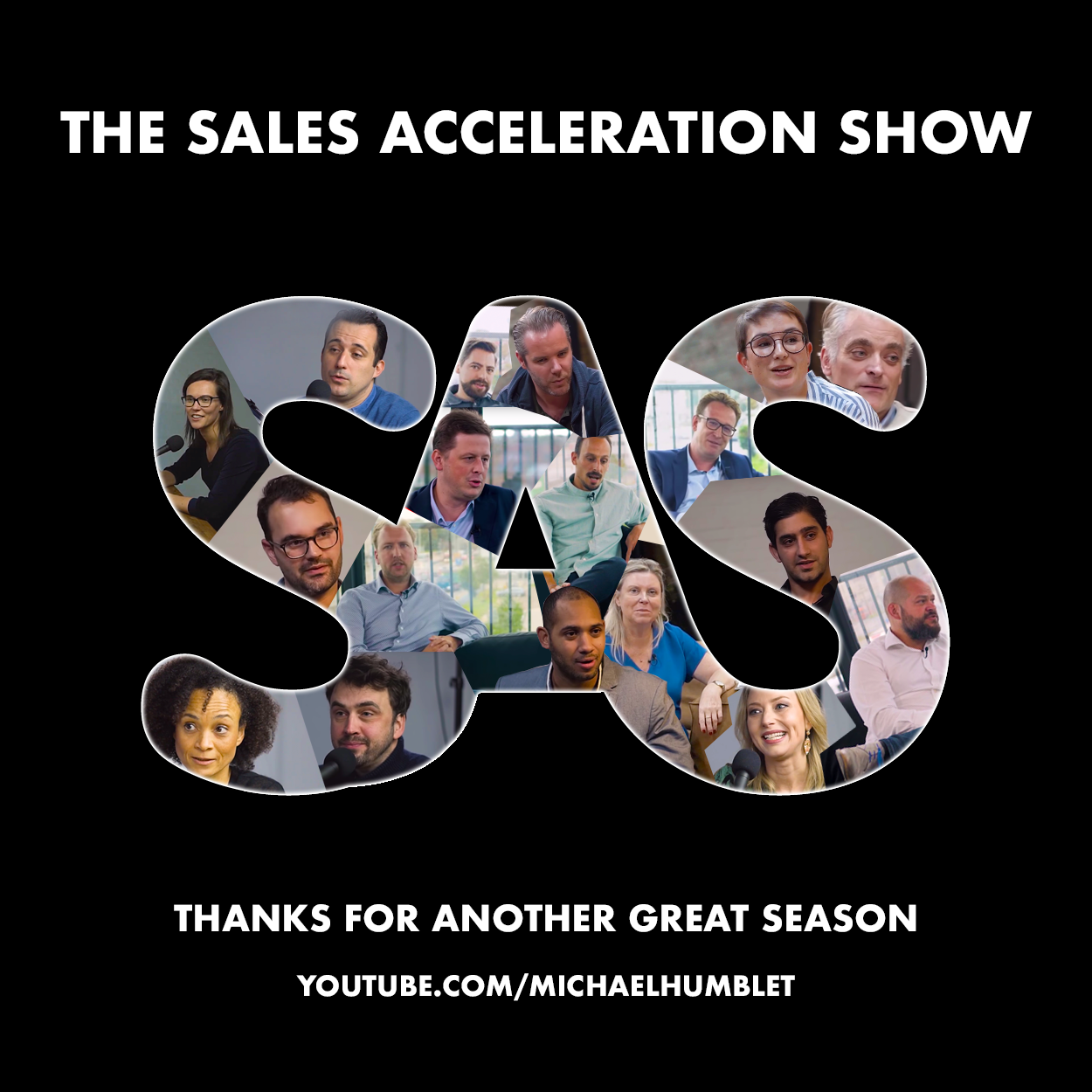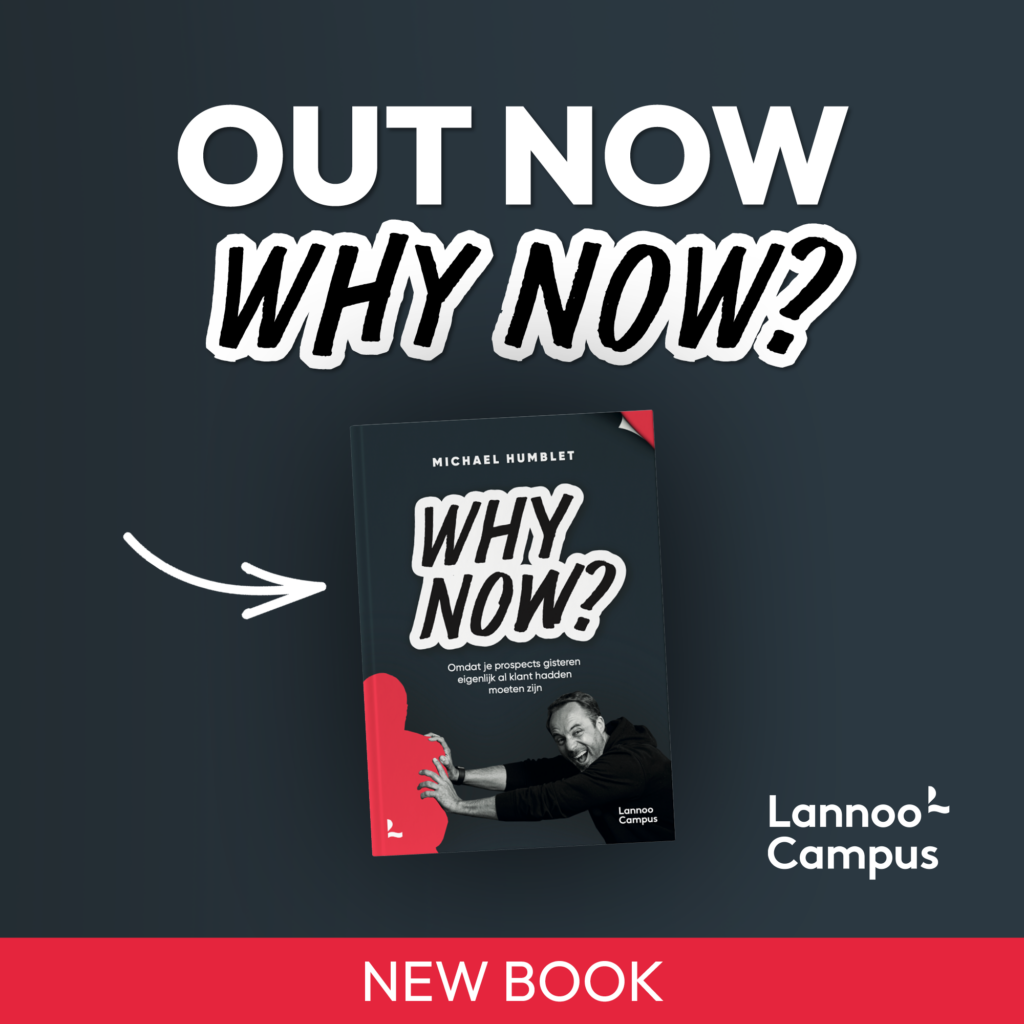Partnerships are the growth model of the future
After writing 2 books about digital transformation and corporate venturing Dado van Peteghem, co-founder of Scopernia, realised there is a mindset in companies that needs to change. If we ever want to build a line of defence against the Big Tech players we need to start working together in a different way. It starts with TRUST. Most companies build a walled garden with their suppliers but Dado is pleading for the concept of a wild garden. A place where business starts by trusting each other and companies consider themselves equal. How can we leverage Partnerships as the growth model of the future!
How to build trust with Partnerships: Full Transcript
Michael Humblet:
We only had two guests coming back to the show. So, Dado, this is very special because this is the second time we have in almost 80 episodes somebody coming back. That means I was impressed the first time and secondly, lots of stuff happened in the meantime. So explain to our viewers what you do.
Dado:
I’m Dado. I’m the co-founder of Scopernia. We try to help big organizations with reinventing themselves for transformation and change. Apart from that I’m also co-founder of two, startups, one is Social Seederwhich is a platform enabling employee advocacy, which is important today in the battle for talent and HR. I’m also the co-founder of Speakersbase which is a platform where speakers and organizers can meet and find each other.
Michael Humblet:
And that was the whole topic of the last show. if you haven’t watched it you should do that now. So today we wanna talk about networks and ecosystems.
Dado:
in 2018 I wrote a book with Omar Mohout on the topic of Corporate Venturingwhich was really about…
Michael Humblet:
Let me stop you there because I thought Dado would be talking today I thought we will be talking Corporate Venturing, but no, he launched a new company today.
Dado:
In 2014, with Jo Caudron, I wrote a book on Digital Transformation. After a few years we started to, see that it was difficult for big companies to really reinvent themselves and to completely change course. So, therefore, we saw an opportunity where startups and scale-ups could work together with bigger corporates to really do innovation and change their direction. But more and more I started to realize that also the bigger motherships could start to work together and that probably the leverage effect that they would have if they really work together in partnerships and ecosystems could be more impactful than just working with startups and scaleups. So, therefore, we’re launching a new book which will probably be released in May this year. Together with…
Michael Humblet:
You’re just, you’re just trying to come back for the third time, right?
Dado:
Yeah, that would be great. I’m more than happy to do so. in May 2020, together with my partner Nils van Dam. I’m writing a book called Metasystems, on how to build partnerships, trustful partnerships through growth. And I really believe that the trustful parts is extremely important because we see that that’s where companies are struggling today.
Michael Humblet:
So, let me challenge you a bit straightaway, right?
Dado:
Sure.
Michael Humblet:
So how do we build trust? Because that’s the biggest essential factor, right?
Dado:
Well, there is a great, quote from Hemingway saying: “ the best way to see whether you can trust people is to actually trust them.” and I really think that is what we need to do because if you look today how companies are organized, um, for them control is better than trust.
Dado:
So if you think about governance, um, we even have an interesting debate on whether governance and trusts are conflicting with each other or good governance and trusts are conflicting with each other. But I truly believe that, uh, if companies wanna bet on ecosystems and wanna bet on true partnerships that they need to give trust first and not work with a mindset of NDAs, uh, control, uh, liabilities, risk, et cetera, et cetera, which is typically the mindset of companies today which in a way you need to balance, of course.
Dado:
So we’re not saying that you need to let go of all the things that you need to check. But I believe that we need to become more brokers of trust. That is our idea, we need to give trust internally to people and to the internal organization, but also especially to the outside world and then see how we can do that. And I think that’s the biggest challenge for organizations today is to trust each other and to work together and I believe that that will be our biggest line of defence against the big tech players like Amazon, Alibaba,…
Dado:
We cannot battle them alone so the best way we can do is work together.
Michael Humblet:
So, now I might go integrating on you but you say partnerships and network. The same thing different thing? How should I look at it?
Dado:
That’s a very good question. first of all, I see a lot of companies call their suppliers partners which is beautiful. It’s so true. We call all of our resellers partners but that is not true. It is a way to please the stakeholders
Michael Humblet:
Yeah, for me from a pure sales point of view it’s like 20 years ago, it’s solution selling type of methodologies.
Dado:
Yes, correct.
Dado:
So the difference for me is a supplier solves an individual problem or an employee can work together with you in a company and they’re being paid to do a certain job. But I think a partnership is really about a collaborative opportunity. And once you have a collaborative, or common opportunity that’s where you really can, uh, start to explore partnerships, and we believe in equal partnerships. So today what you see is a lot of companies try to be the big boy and then you have a lot of smaller partners around them, uh, and they try to work in, in walled gardens where they can really control everything which is happening. And within our new book, we are making a statement right what we call the wild garden where you work much more with equal partnerships where there’s nobody on top of the food chain.
Michael Humblet:
Yeah.
Dado:
Where you have a shared purpose, a common goal. Also a bigger goal I would say than purely the commercial part.
Michael Humblet:
For some weird reason, while you’re talking, I see these trends what you see now in gardens it’s you let the pieces of the garden go wild for the business. Actually that’s what you’re saying.
Dado:
That’s what we’re saying.
Michael Humblet:
You take a piece and you, you see and actually the whole garden will flourish because of the one piece of wild flowers.
Dado:
That’s very good that you make that metaphor because you can use it in…, thank you, Michael. In the walled garden, what you have is you have like 50 animal species and it’s very controlled, but you will never have the serendipity of something new and wild coming up. So, therefore, the idea of the wild garden where there’s less, much control. So, of course, there are more, things that are uncontrollable, but by being more uncontrollable you have the power of serendipity and exotic plants that suddenly pop up. Which gives much more opportunity and we believe that companies need to balance the walled and the wild garden with each other. And again, their trust is important.
Michael Humblet:
From a pure sales point of view, I’m listening and I’m thinking what I’m teaching helping others and I’m thinking, “Oh boy, that’s gonna be really hard sales because you’re no longer convincing one. You start to have to convince a lot of people and it’s gonna be really tough… difficult and tough.
Dado:
True. And I think you need to start with the smallest part.
Michael Humblet:
I wouldn’t go to the biggest part. That’s where I would go straight away.
Dado:
I think you need to have the ambition, of course, to really create a substantial partnership would have the biggest leverage, but I believe that the smallest part we call it the MVP and the partnership. This is where you should, battle, and it’s the smallest thing you can do.
Dado:
By the way, there is an interesting, um, dynamic which we are exploring. We call it slow versus fast and we’re both fans in a way of Gary Vee and he always talks about, you have to be fast in the micro but patience in the macro.
Michael Humblet:
Exactly.
Dado:
But we believe that for partnerships here’s a, a great similarity there because what, what happens is, Company A goes through Company B, and they book a meeting of one hour to explore a partnership.
But that’s not how you create trust. So to create trust we believe you need a slower approach, you need more time. So I think companies need to be very fast in trying out things together, but they need to leave time to really explore the trust behind, and to get to know the people behind.
Dado:
And that’s where really the magic happens. So slow and fast together. That’s the magic formula of creating true partnerships. So, Michael, I know you’re the revenue man and I truly believe that revenue is extremely important is the engine
Michael Humblet:
The lifeblood
Dado:
The lifeblood is the engine of your growth. But what I came to realize is that there’s more to growth than just revenue top-line and bottom-line results. So one of the taglines we’re using now within our company is growing is progress and progress is the real profits. And what I came to realize is that there’s a huge dichotomy between the for-profit businesses and the non-for-profit businesses. So, one are very capitalistic, they wanna make money, it’s about, creating EBIDTA for the shareholders. They’re like money machines.
Dado:
And then you have the non-for-profits who think money is really bad. They don’t want to create a business model. Everything that is related to money is… sounds super bad. So there are two extremes. And what we believe is that there is a hybrid model, what we call the more than for-profit businesses, that really tried to mix the idea of creating value through revenue and bottom-line results, but who also think about the impact that they have on society. And I have to say that’s inspiring a lot of people. If you think about the millennials who are looking for a job right now, they all try to find a bigger goal, a bigger purpose.
Michael Humblet:
Yeah, the higher purpose.
Dado:
If you listen to what customers are saying they look for companies that create something more than just a perfect product or service with the right results. So we believe in this more than for-profit concepts and I think in terms of sales it cannot wait to sell
Michael Humblet:
Also, I believe that the longer term is just, just important. And if you go for the quick kill, it’s never gonna work in the long run. You have to build a different model, you have to look into a longer model otherwise just not sustainable. The issue I always try to solve, one of the things that always gets to me is that before you get there, you need to survive.
Dado:
Right. True.
Michael Humblet:
So you either get investment or if you wanna do it yourself and you make a healthy business that’s tough.
Dado:
Yeah, it is.
Michael Humblet:
Once you get there that thing starts rolling you’re off.
Dado:
Yeah.
Michael Humblet:
But that first year, oh boy.
Dado:
Yeah, but we believe that… So you see a lot of models, for example, Bill Gates foundations.
Dado:
Indeed. So what they do is first they become billionaires and then they- give back to society, which by the way I hugely respect. Because they could also just be on a yacht in the middle of the ocean. So I have huge respect but I believe that there’s an opportunity for people running a business to guts, doing well and doing good in the heart of their organization-… while they’re doing it, while they’re making the money they can have an impact as well. And I think it’s not just an impact on the sides. I think that impact creation can be part of your business model.
Dado:
So that’s how you attract people both customers and employees.
Michael Humblet:
Yeah. Exactly. I mean this show is an example of that. I always say, this show should be for free, and it should be for all the people who held them. It’s actually the same thinking. And funnily enough, it… there was a lot of things coming around it. So I’m, so I’m teaching a lot of businesses actually you should do on purpose one day, a month or whatever you can do, do something. Don’t ask money for it, do it for free on purpose. Because you will have a different mindset. And it’s truly sharing, I’m not saying I’m gonna share, or I’m gonna do something to get something back.
Dado:
In a lot of organizations, the mindset for partnerships, and so they think about themselves first and then if the other one can get something in return, it’s okay but it’s really about themselves. And I truly respect what you’re doing. I think it’s amazing with your show you’re giving a lot of value both to your viewers, but also to people like me like we can share our story.
Michael:
Yeah. And it’s one, the one thing I’ve learned last year you know, it’s a little movement every day, the little push you do everyday results at the end is something massive.
Dado:
Yeah, of course.
Michael Humblet:
But it’s a lot of little pushes and you get frustrated and we’ll get tired and I get it. But the difference between, I’ve seen, between the ones that win and aren’t getting big is actually, they keep doing that little push over and over again.
Michael Humblet:
They never stop and then eventually you’ll result in something. It was great having you in the show, Dado.
Dado:
You’re welcome.
Looking forward. Thank you.
Michael Humblet:
Thank you.
